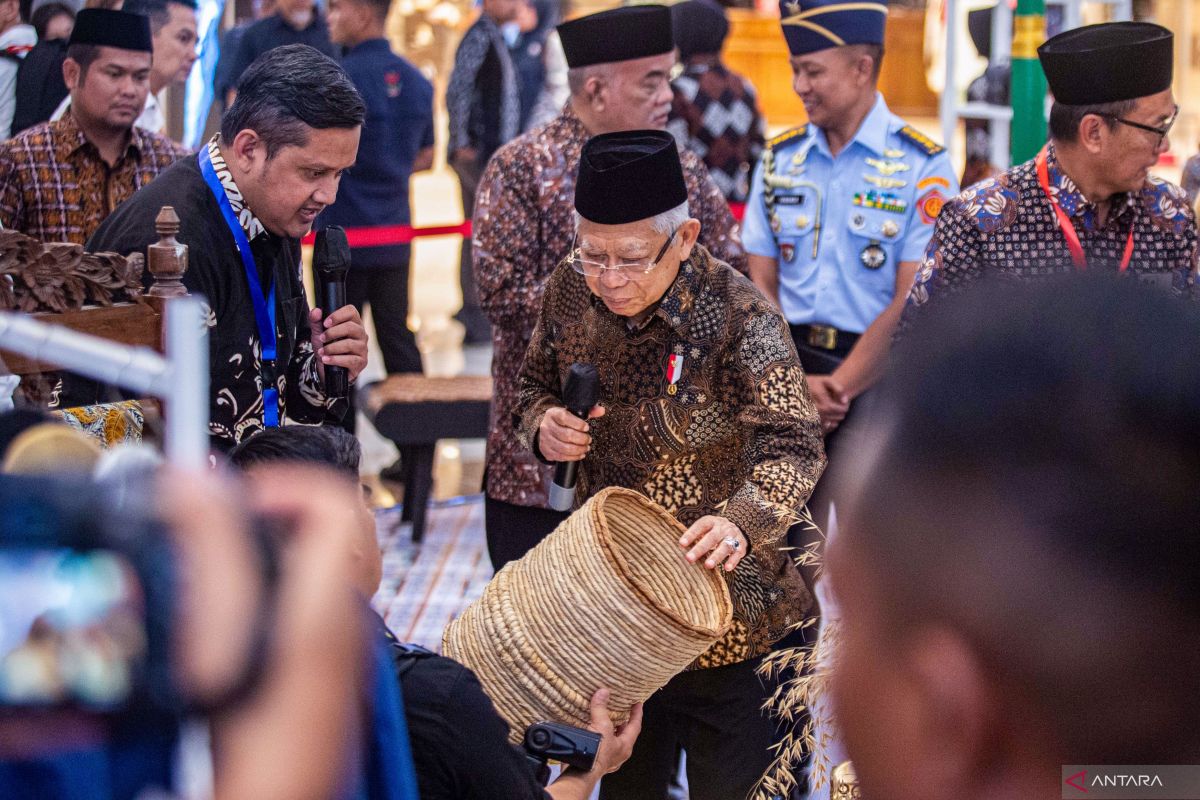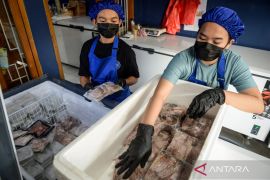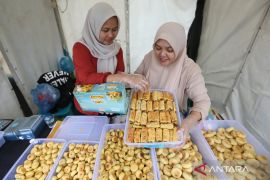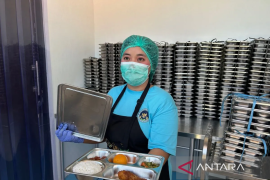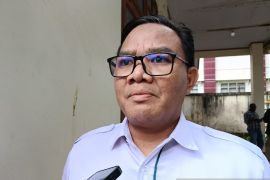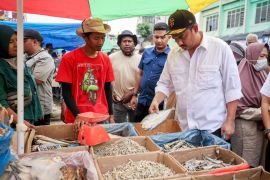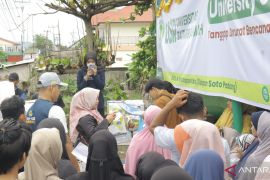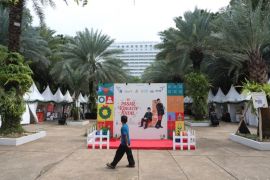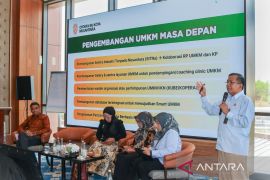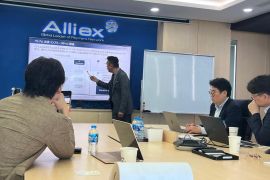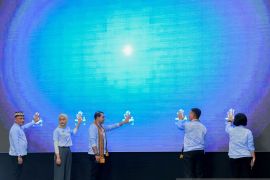If business players can maximize the use of digital facilities in running their business, they can ensure their business continues to run, and even, find new opportunities for business growth.
Digitalization can help micro, small, and medium enterprises (MSMEs) boost business efficiency and productivity, increase market access, as well as improve competitiveness.
With the help of digitalization, MSMEs can also market products more widely online to reach international consumers. This would support MSMEs to penetrate the global market.
Given the continuous developments in the digital world, MSME players are expected to be more savvy regarding the latest information technology and the digital world, as well as optimize the use of digital technology for business expansion to the global level.
To this end, MSME digital transformation is one of the main pillars to push MSMEs to adopt digital technology and carry out exports in an end-to-end manner as well as form an inclusive and sustainable business ecosystem.
This can open new opportunities for MSME players to penetrate the global market and innovate to improve the quality of products.
In 2023, the number of MSME players in Indonesia stood at 66 million. The contribution of MSMEs to the gross domestic product (GDP) was 61 percent, or equal to Rp9,580 trillion (around USD610.11 billion). MSMEs provided jobs to 117 million people, or 97 percent of the workforce.
However, according to government records, only 27 million MSMEs entered the digital ecosystem as of December 2023. This year, the government is targeting to get around 30 million MSMEs to enter the digital ecosystem.
The government is also targeting to get MSMEs to carry out exports. Currently, the contribution of MSMEs to national exports is just 15.7 percent, lower than in Singapore (41 percent) and Thailand (29 percent).
To encourage MSMEs to go digital, awareness is needed for building and managing the presence of MSMEs on social media, optimizing the use of globally oriented e-commerce platforms, and using digital payment channels.
These breakthroughs could help MSMEs penetrate global markets, if accompanied by efforts to understand consumer preferences and global market conditions as well as production planning and supply chain management to meet market demands.
To strengthen the marketing aspect, MSMEs must build a strong brand by highlighting the quality, uniqueness, and added value of the product to create positioning in the global market.
The Indonesian Government is continuing to support, facilitate, and assist MSMEs to level up, enter the digital ecosystem, and export their products, for instance, by strengthening capacity, quality, marketing capabilities, market access, financial access, policy support, and financing facilities.
The government is also providing assistance to MSMEs for developing websites, applications, and other digital capabilities that can help them run their business more effectively and efficiently.
In this regard, Bank Indonesia (BI) has been consistently taking measures to encourage MSMEs to enter the digital ecosystem and carry out exports through four steps.
The four strategic efforts include strengthening curation in line with global market demands and requirements based on market intelligence, as well as providing promotional access to the global market through various domestic and international trade promotion activities.
The trade promotion activities include organizing the Indonesian Creative Works event, expanding trading houses such as the Indonesia House of Beans in Tokyo (Japan), Malaysia, and Singapore, and establishing the Indonesia Small Medium Enterprises (SME) Hub.
BI is also pushing for the improvement of digital literacy so that MSMEs can utilize technology effectively as well as increase awareness of fraud risks.
In addition, BI is providing education to encourage MSMEs to move toward export markets, including through several MSME Go Export modules covering business potential, market trends, strategies, opportunities, procedures, requirements, and other tips and tricks.
According to BI Deputy Governor Juda Agung, those measures are inseparable from the collaboration between BI and the government, relevant authorities, industries, MSME players, and the community.
Several ministries, under the coordination of the Coordinating Ministry for Economic Affairs, are also running programs to help MSMEs export their products.
The Ministry of Finance is providing the Import and Export Destination Facility (KITE) to small and medium industries, which exempts them from value-added tax (VAT) and import VAT. The facility is being provided to small and medium industries or MSMEs that process, assemble, or install raw materials for export purposes.
The ministry has also set up export clinics to provide literacy and export education to MSMEs or small and medium industries.
Furthermore, the Ministry of Trade is targeting to create new exporters among MSMEs through the facilitation of export market information, product competitiveness improvement, cooperation, promotion, and human resource improvement.
The Ministry of Cooperatives and SMEs is also encouraging MSMEs through human resource training, assistance via the Integrated Business Service Center, institutional strengthening of cooperatives, and export market access support.
Green MSMEs
One of the MSME sectors that is contributing greatly to economic growth is fashion. On the global side, demand for sustainable goods, including sustainable fashion products, increased significantly by 71 percent from 2016 to 2020.
To seize this global market potential, MSMEs must follow current global trends and increase their capacity to reach sustainable fashion markets.
According to BI's assessment, 30 percent of MSMEs were classified as Green MSMEs in 2023. Therefore, transforming MSMEs to support environmental sustainability and adoption of digitalization in production, marketing, and the socioeconomic aspect needs to be optimized.
Thus, according to BI Deputy Governor Aida S. Budiman, MSMEs can contribute positively to inclusive and sustainable economic growth, in addition to increasing their performance and competitiveness.
BI is continuing to push collaboration and synergy between stakeholders to open ways for digital MSMEs to expand their reach.
With competition on the international stage getting tougher, MSMEs are required to continuously develop their capacity, quality, and competitiveness to be able to compete with business players from other countries.
To this end, several programs, policies, and forms of support, including financing, from all stakeholders would help more Indonesian MSMEs enter the digital ecosystem and carry out exports.
Related news: 25.2 million MSMEs entered digital ecosystem: Minister
Related news: Digital technology should benefit all, including MSMEs: Minister Hasan
Editor: Rahmad Nasution
Copyright © ANTARA 2024
